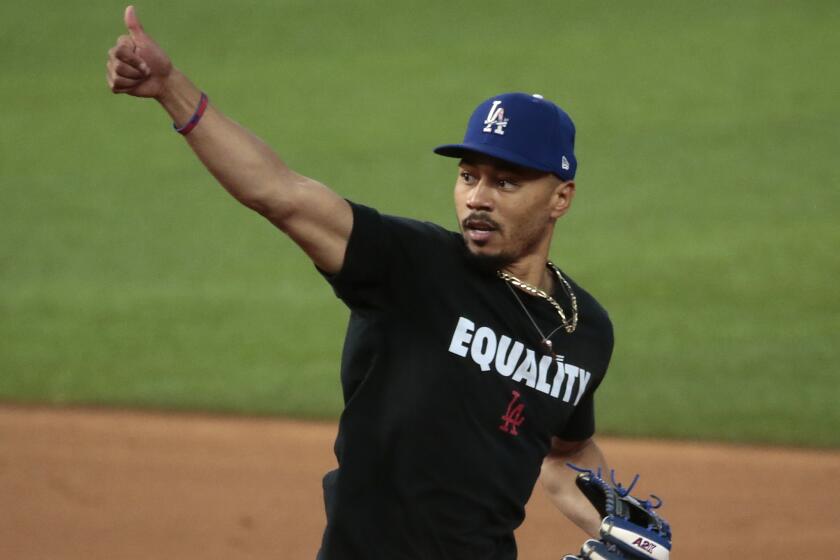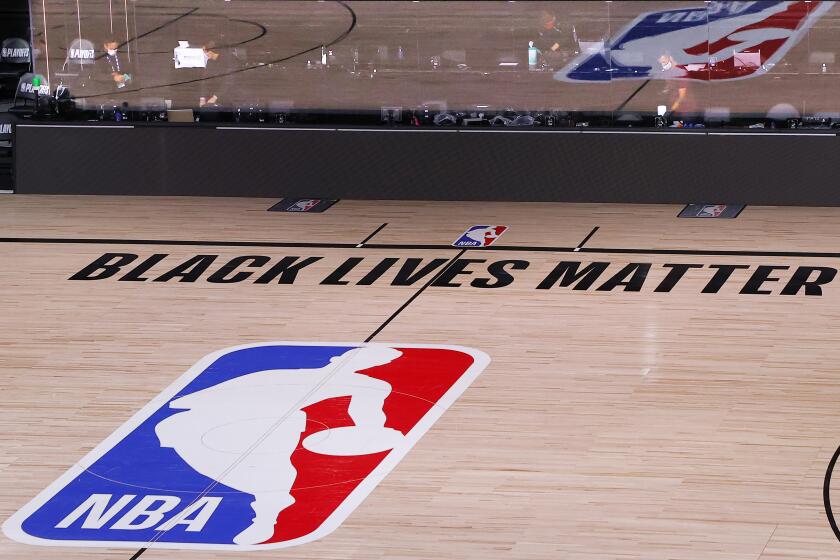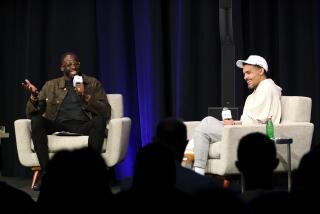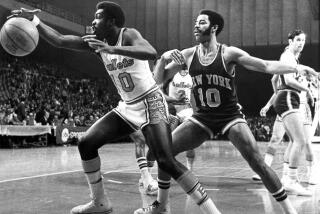Political and social justice discussions now a part of sports locker rooms
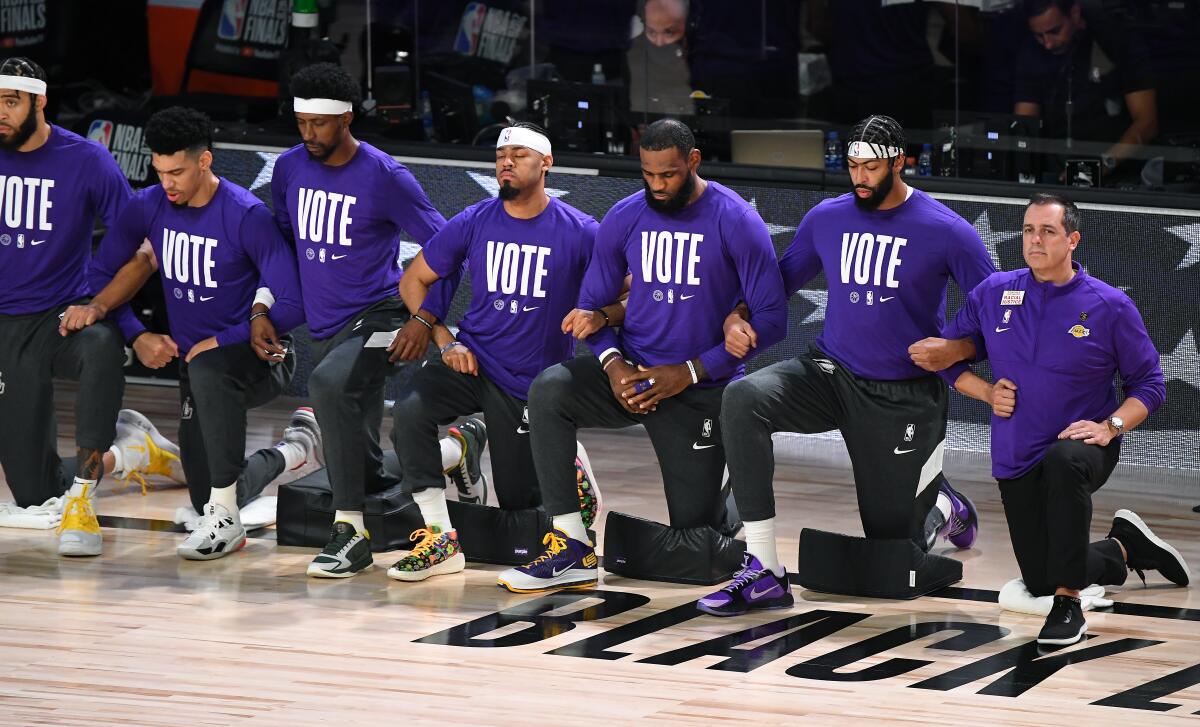
The Rams already had plenty to think about leading up to their Week 5 game against Washington. There was the cross-country flight, an early kickoff and a new scouting report to learn with Washington announcing a switch at quarterback. But three days before the game, Michael Brockers had a question for fellow defensive lineman Aaron Donald that went beyond the field.
Did you vote yet?
With election day looming, sports and politics have never been more intertwined, as basketball teams have played on courts emblazoned with “Black Lives Matter” and the NFL has run public service announcements on voting. Sideline chit-chat has been equal parts Xs and O’s and mail-in ballots as a summer of social unrest reaches an autumn crescendo on Tuesday.
“We know that we’ve got to get out there and vote and guys need to go vote,” Donald said. “And we’re making sure guys are doing that.”
Though politics doesn’t dominate the locker room, the Rams’ conversations “echo” those in society, Donald said. Some of the dialogue is new, coach Sean McVay said, sparked by increased focus on racial inequality this summer.
Plaschke: The most important game of the Dodgers’ World Series title season was one they didn’t play
Mookie Betts, the Dodgers’ only African American player, wasn’t going to play August 26 as a message of social protest, so his teammates didn’t play either.
The WNBA has consistently led social justice conversations in sports, and players continued this season by championing the “Say Her Name” movement and wearing Breonna Taylor’s name on their jerseys. Taylor, a Black woman, was shot and killed by police who entered her home with a no-knock warrant believing it was used for selling drugs.
To push further, the WNBA incorporated voting as an action item.
“Those norms were changing this year so it’s easier to have those conversations,” said New York Liberty rookie Jocelyn Willoughby, who mentioned voter registration and discussions about issues such as police reform. “Some of those conversations became less taboo and were easier to begin to dive into.”
It wasn’t that teams avoided talking politics before, Willoughby said, but she felt that the moment demands those discussions now.
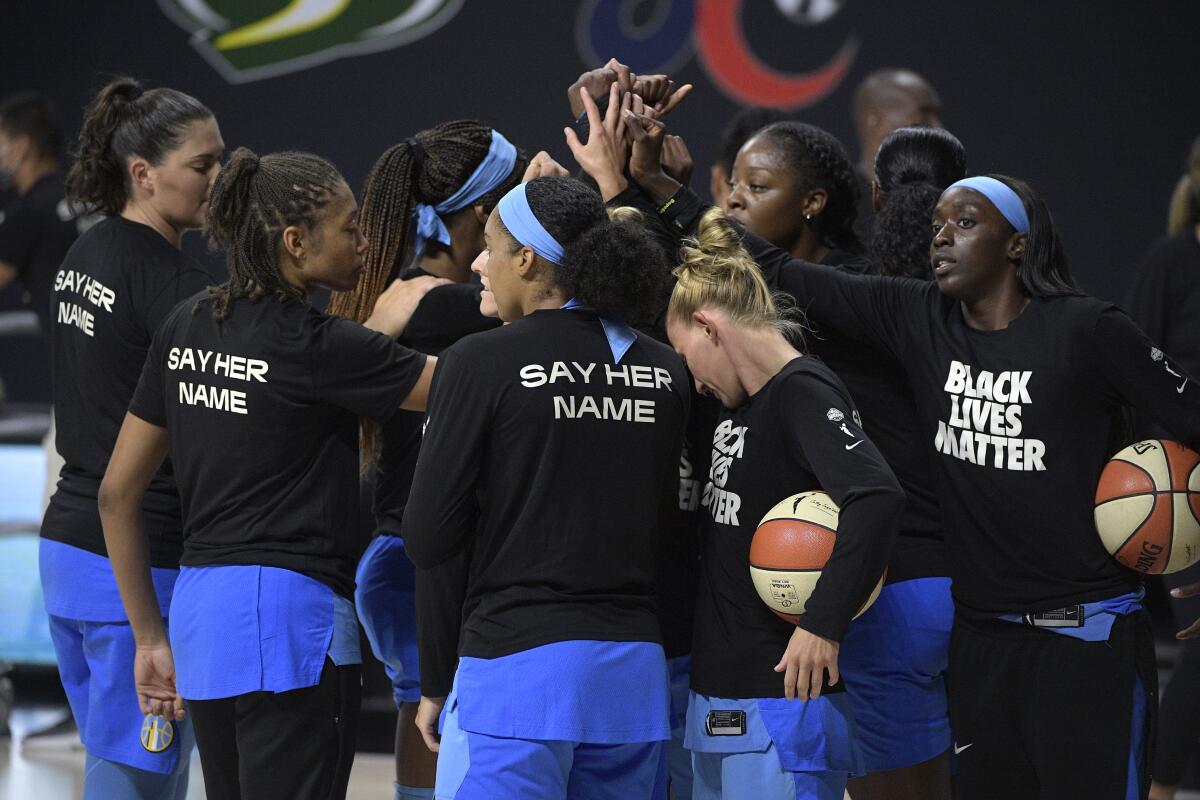
The sheer volume of professional athletes speaking out against racial injustice is “unprecedented in the history of this country,” said Betina Wilkinson, an associate professor of political science at Wake Forest.
As criticism of police brutality dominated the summer, with names such as Taylor, George Floyd and Jacob Blake in the news and on social media, WNBA players stayed in the arena tunnel during the national anthem before games and the league champion Seattle Storm formally endorsed Democratic candidates Joe Biden and Kamala Harris in a tweet two weeks before the election.
In the NBA, players knelt during “The Star Spangled Banner.” Coaches, including the San Antonio Spurs’ Gregg Popovich and former Clippers coach Doc Rivers, were vocal supporters of the players’ calls for racial justice. The conversations spread to all corners of the bubble, including to the referees.
Unlike NBA players, who are 74% Black, according to the Institute for Diversity and Ethics in Sport, and head coaches, who were 70% white at the beginning of the 2019-20 season, NBA referees are a more diverse group.
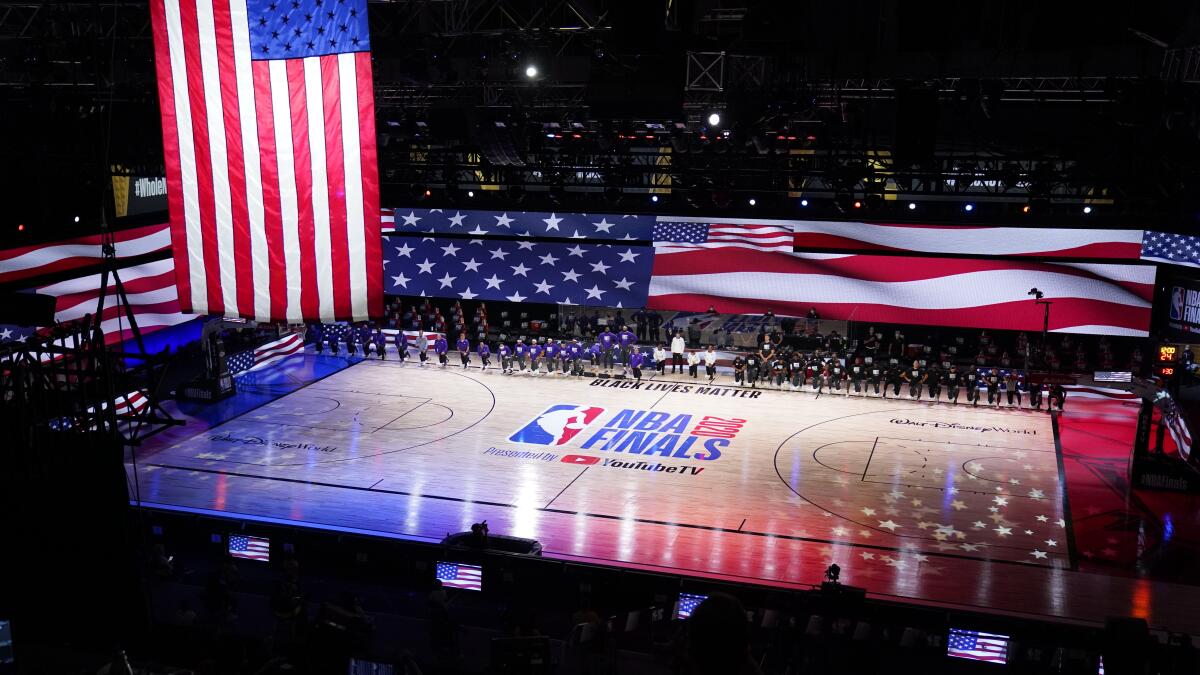
The referees were known in the bubble for dominating the pickleball courts during their free time, but the group’s intense meetings about social justice are what veteran official Marc Davis will remember most.
“We made the oath and the pledge that everybody would come to these conversations seeking to understand, rather than to be understood,” Davis said. “And that was the spirit we came with, to seek to understand one another.”
Wilkinson has found that statements from professional athletes can shift opinions regarding racial issues. The professor, who specializes in racial and ethnic issues and public opinion, is conducting a study with Lisa Kiang, a Wake Forest professor of psychology, and Indy Cousin, a student at the school, to gauge the influence of athletes who speak out on police brutality, criminal justice reform or white privilege.
Preliminary surveys indicated that former San Francisco 49ers quarterback Colin Kaepernick swayed both NFL fans and others when he knelt during the anthem to protest police brutality in 2016.
The Lakers and many other NBA players used their time in Orlando, Fla., for activism to fight social injustice and seek ways to continue advocacy.
Spreading awareness of racial injustice to get more than Black people into the conversation is the goal, Sparks guard Tierra Ruffin-Pratt said.
The Black Lives Matter movement gained spikes in support during the summer, with 67% of U.S. adults supporting the cause in June, according to the Pew Research Center. But that number fell to 55% by September. White adults who supported the movement “at least somewhat” dropped from 60% in June to 45% in September. Support from Hispanic adults decreased by 11 percentage points.
“We can’t change the climate ourselves and change racism,” said Ruffin-Pratt, whose cousin Julian Dawkins was killed by a police officer seven years ago. “We can’t change people from being racist. We can’t stop police from killing us by just saying ‘Stop killing us.’ That’s something that’s going to have to happen from within those people who are doing it, those people who believe that it’s OK.”
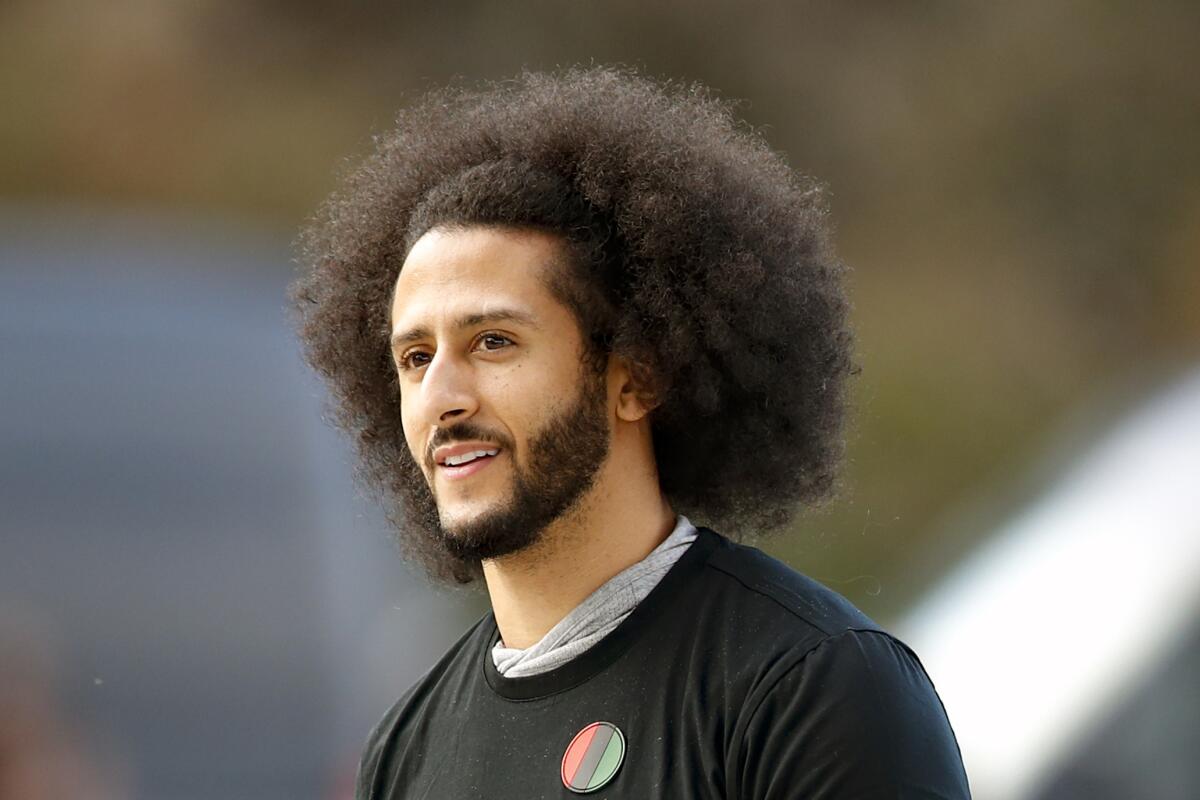
The next stage of Wilkinson’s study focuses on how white athletes have reacted to calls for social change. U.S. national team midfielder Megan Rapinoe answered quickly as one of the first athletes to join Kaepernick in his 2016 protest by kneeling during the national anthem at an NWSL game.
NBA player Kyle Korver wrote a Players Tribune essay in 2019 recognizing his white privilege. In June, New Orleans Saints quarterback Drew Brees was critical of players kneeling during the anthem, but walked back his statement after backlash.
Wilkinson said examining these three white athletes can help to understand what it might take for white people, who are generally more hesitant to support racially progressive policies, to “be more amenable to changing their stances.”
Athletes in the NBA, WNBA, MLB, MLS, NFL, NHL and professional tennis refused to take part in scheduled events in protest of the shooting of Jacob Blake.
Change has long been at the forefront of LeBron James’ mind. He and his Miami Heat teammates wore hoodies in a show of solidarity after the 2012 killing of Trayvon Martin, a Black youth, by an armed neighborhood watch volunteer in Florida. Eight years later, the Lakers star helped form the voting rights group More Than a Vote to combat voter suppression and misinformation in Black communities.
“There are so many bigger things and so many greater things that’s going on,” James said during the Lakers’ run to the NBA championship. “If you can make an impact, if you can make a change, if you can have a vision, it just helps out so much, not only in [your] community but all over the world.”
Times staff writers Gary Klein, Broderick Turner and Dan Woike contributed to this report.
More to Read
Go beyond the scoreboard
Get the latest on L.A.'s teams in the daily Sports Report newsletter.
You may occasionally receive promotional content from the Los Angeles Times.

